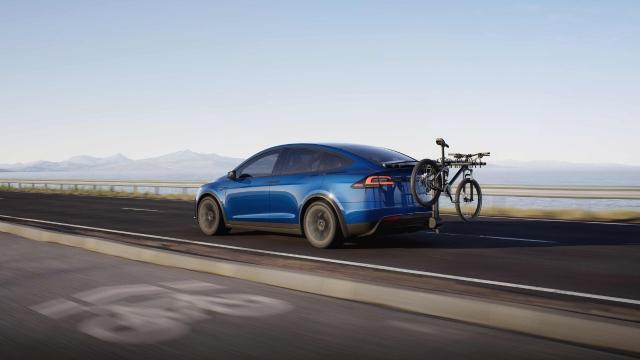The government of Western Australian has announced a $60 million electric vehicle package, including rebates for EV buyers and an increase in charging stations across the state… But the WA government is also preparing to introduce a tax on electric vehicles.
How do you want me to run through the “Clean Energy Car Fund”? Good news or bad news first? Let’s rip the bandaid off and go bad news first.
From July 1, 2027, EV owners in Western Australia will be taxed a base rate of 2.5 cents per kilometre for electric or hydrogen vehicles (2 cents per kilometre for hybrids). This was announced today as a part of a bunch of good news around EVs, so it kind of sticks out like a sore thumb.
“In line with other states, WA will introduce a distance-based road user charge for zero and low emission light vehicles,” the press release reads, adding it is “to ensure all motorists pay their fair share towards the maintenance and construction of WA roads.”
The only other state that has a tax like this at the moment is Victoria (though the NSW government is also planning one for 2027).
The tax in Victoria, which came in around this time last year, was labelled the “worst electric vehicle policy in the world” by the Electric Vehicle Council, though keep in mind it was introduced before Victoria announced its $3,000 rebate scheme.
Included in the WA package, however, is the promise that $200,000 will go towards systems for monitoring and collecting road use data on electric and hydrogen vehicles.
🚗Great news out of WA today as @MarkMcGowanMP announces $60million for #EVs in 22-23 budget w $36.5 million for $3,500 rebates & $22.6 million for charging infra
💰ALL states and territories now have some form of #EV subsidy 👏
⁉️ Only Fed govt missing https://t.co/1elnrgu3jl— Electric Vehicle Council of Australia (@EVCouncil) May 10, 2022
Alright, yeah, that’s not terrific, but how about some good news: the $60 million package.
As a part of the 2022 to 2023 Western Australia Budget, the state will offer $3,500 rebates to people who purchase hydrogen or electric vehicles.
“Our $3,500 rebates are one of the most generous grants on offer in the nation and will see an extra 10,000 electric and hydrogen fuel cell vehicles on our roads,” says Western Australia’s Premier Mark McGowan.
“This will assist WA with reducing greenhouse gas emissions to net-zero, while also reducing the pressure of high petrol prices on WA households that utilise the rebate.”
$36.5 million of the earlier mentioned package cash will go towards these rebates, with 10,000 on offer to begin with. These rebates apply to the purchase of electric vehicles up to the $70,000 price threshold (which includes the Tesla Model 3, unlike Queensland’s similar policy).
This is a pretty generous amount to rebate, in line with what’s currently on offer in New South Wales with $500 added on (with a higher threshold, too, although keep in mind that NSW EV owners don’t have to pay stamp duty). It’s a solid policy.
Moreover, the Western Australian government says that it will invest $22.6 million in new charging infrastructure across the state, with grants available to not-for-profits, and small and medium-sized businesses. Local governments and the Public Transport Authority will also be invited to install electric vehicle charging infrastructure as a part of a Clean Energy Car Fund grant. Eight new charging stations are also set to be built across National Highway 1, to “ensure WA’s electric highway extends to South Australia”, as the press release reads.
Though the announcement seems to favour hydrogen vehicles alongside electric vehicles in terms of rebates, it’s a bit interesting that Western Australia hasn’t announced a plan to build hydrogen refuelling stations (the only plan to do this really has come from the federal Labor party). We’ve reached out for comment.
Regardless, rolling out more electric vehicle charging stations in Western Australia is something that should be done. In the entire state, there are only 194 public chargers available, but this will likely change things up.
Topping things off, the state government says it will invest an additional $31 million in environmental assistance areas, in particular in transitioning agriculture, freight and heavy transport industries to net zero. Carbon farming and climate risk assessments will also be developed with this money, as will research into transitioning the Public Transport Authority’s bus fleet to electric.
Previously, we reported that electric vehicles are the most expensive in Western Australia, however this rebate, now the largest rebate on offer for an EV in Australia, will surely change this. The tax, however, is definitely a caveat.
Up until now, the only EV incentives that existed in Western Australia included an exemption from the on-demand transport levy (if you’re an Uber, taxi or charter vehicle driver) and access to the EV Home Plan Inventive (aka, you could get 60km of charging and $200 free, if you charge during off-peak periods).
If you’re interested in the available EV incentives in your state, you can find that information here.
